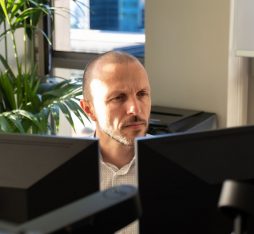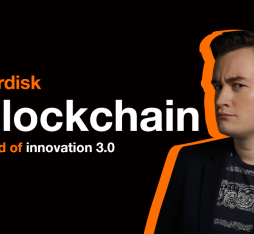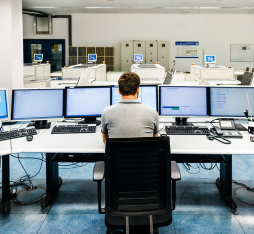Any innovation brings with it “Two kinds of limits: those that you know and that you try to resolve, and those that you do not know.” Truism? Fundamental posture, rather, as recalled by Nicolas Demassieux, SVP at Orange Labs Research, which protects any fetishism through the exercise of critical doubt. An exercise that is more essential and beneficial than ever, at a time when both the acceleration and the profusion of innovation can easily turn heads…
While “scientific revolution”, according to the expression of Nicolas Demassieux, and “buzzword” are magic on social networks, blockchain perfectly illustrates this phenomenon. Its potential for progress is real … as are its current boundaries and the issues it raises.
What are we talking about exactly? “Blockchain technology, explains Nicolas Demassieux, solves a very simple problem that we have known about for a long time: when you want to record transactions, you need someone to keep the accounts. For a long time we had no alternative but a centralised solution to it. Blockchain is a distributed technology which means that, through the cooperation of a large number of actors, each contributes to keeping these accounts.”
Promises and limits
The potential of this breakthrough technology can be seen in “smart” contracts. While the “simple” blockchain is a way to enter a transaction into a register, the smart contract also enables you enter “all the conditions that will be tested to trigger this transaction,” says Nicolas Demassieux. That is what “the great promise of Smart contracts”, is, he adds: “We will be able, with these conditions encoded in the software, to scan the contracting process from end-to-end; this will speed up economic flows, making them more ‘intelligent’.”
But this revolution also carries with it limitations and can make the economy “more unstable“, points out the research director of Orange. More broadly speaking, blockchain is not without it limits. Its energy cost is one: “If all the transactions of the world were carried out on blockchain, we would not have enough energy on the planet to run the system, it’s just not possible in the current version of blockchain”.
Another limitation: the risk of rigging! Explanation: “To run the bitcoin blockchain for example, there are ‘minors’ and today, they are Chinese actors – ‘mining’ industrialists that control a very large proportion. If tomorrow they agreed to rig bitcoin, they could do it.”
Trust Issues
Moreover, unlike Wikipedia, or ICANN, which provides Internet governance,
Governance of bitcoin is problematic. Nicolas Demassieux emphasizes the difference between the technical governance of blockchain and the specific governance of its most common application, bitcoin. “For bitcoin, he points out, it remains obscure, this is not transparent governance. We don’t know how it is organized. If tomorrow I wanted to enter into bitcoin and write the software, how would I do it?”
This opacity raises obvious issues of trust. “What are the intentions of those who have developed this technical system? What are their ambitions, how do they operate in their decision making?” So many questions today are without answers. However, as Nicolas Demassieux recalls regarding the topic of “safety and trust”, one of the research areas of Orange, the two assets of the digital economy of tomorrow are knowledge and trust.
Encoding democracy?
So many questions need to be posed because, beyond the subject of the bitcoin which is anecdotal enough at this stage in its real economic dimension, the emergence of the code in decision making is abysmal in its implications. Smart contracts, as we have seen, are used to encode the rules of the realization of a contract. If we can encode rules of the game and also the rules of governance then, why not, those of democracy…?
But Nicolas Demassieux warns against an outrageously technocratic vision. “Democracy spends its time changing the rules, he recalls. It does so in a human way, that’s all, in order to take account of political objectives or correct operational dysfunction. So beware: the idea that we can achieve optimal rules in an instant, that they are entered into a piece software and then there is nothing more to do, I don’t believe it for a moment!”
“All these systems are very interesting because they will enable automatism and make a number of operations less expensive but, he adds, the intelligence to set out good rules of governance adapted to our ambition, our policy, and ensuring that they are respected, remains the domain of free will for the moment. Do I want a democratic system or a tyrannical system, it always comes down to this and it’s not blockchain that is going to change it!”
For further information






